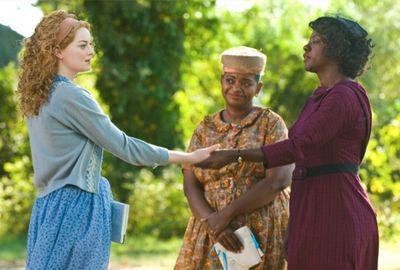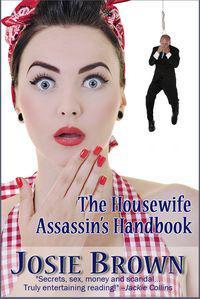
I was (as we say there) born and raised in Atlanta. I grew up in the Atlanta of the 1960s. Back then, the mayor, a progressive-minded man named William Hartsfield (and back then, "progressive" wasn't a dirty word) made our slogan, "The city too busy to hate."
Keep in mind that Atlanta was also the home of Martin Luther King, Jr.
I was a child of the sixties. I remember segregation and integration, which happened while I was in elementary school. I also remember Dr. King's assassination, in Memphis. At my school in DeKalb County, as we watched the funeral on television, I remember our teacher's prediction: "You will always remember this day."
She was right, although we were too young to understand what it meant.
At one time, it had also been the home of the Klu Klux Klan. In fact, it once stood on what is now the grounds of one of the three elegant churches that grace Peachtree Street at the southern apex of Buckhead known as "Christ Curve." The biggest irony is that the church is a Catholic congregation: a religion that the KKK hated. That the priests decided to invited the Klan's Imperial Wizard to the dedication is proof positive that any piece of land can be sanctified.
Which brings me to the questions being raised by the movie based on Kathryn Stockett's runaway bestselling book, The Help:
First, does it vilify its Caucasian characters? And secondly, does it correctly represent the African-American dialects of the time? And finally, do the African-American experiences ring true?
My own opinion: I loved the book. And my personal take on the first is that Ms. Stockett has been true to the South we both grew up in (albeit a few years, and miles, apart).
Before integration, there was a difinitive separation of classes. Whereas some of it was based on "breeding." (Who was your daddy's daddy, and your mama's people?).
Certainly religion played into it. But mostly, it was based on color.
Integration was resented by most of the Caucasian population. No one who lived through it can deny that.
In many ways Hartfield's Atlanta was a bubble of positive race relations, but no one who lived there during those tulmultious times cannot deny that it had its fair share of racial violence. The 1958 bombing of the Jewish Temple on Peachtree Street in Atlanta's Brookwood neighborhood was one very sad example.
My parents had moved to Atlanta in the mid-fifties, from Manhattan, because of a transfer that my father had agreed to. My maiden name is Martinez, and both my parents had been born in Puerto Rico, albeit raised stateside. Like them--and unlike my older sister--I had thick, curly dark hair and an olive complexion, but also light eyes. I remember a little boy in my class asking me, "What are you?" The question stumped me. I didn't know how to answer! I mean, I was a girl, of course. Wasn't that obvious?
His next question shamed me, because I interpreted it as a slur: "Are you a nigger?"
That was a word we never used in my house. Ever. I had no right to feel ashamed.
I wonder if there was a time, even later in life, where he grew to regret his own use of it.
Had I grown up in the North, I'm sure I'd have heard another taunt: "Spic." But since we weren't the predominant minority in Atlanta, that word wasn't as well known back then. I guess we skirted by. Sure, our name was inevitably mispronounced ("Mart-TEEN-ez" became "Martin-EZZ"). That is a small price to pay for the privilege of being allowed to "pass."
To answer the second question: yes, the South has many dialects, for both the predominant races. When I lived there, I could tell if the person speaking to me was from Georgia, Alabama, North Carolina or Texas by his or her "twang." Then again, I could also tell an Aussie from a Kiwi. I guess I have an ear for dialects. It got me into radio. (The need for sanity got me out of it.)
I moved from the South after marriage, to the San Francisco Bay Area. I married a Yankee: a nice Jewish boy from the Bronx, who had moved to Atlanta after college. As much as I loved Atlanta and had grown up around Southerners, I never got over the presumption that I might be too exotic for any man who drank rum and Cokes, had gone to UGA (University of Georgia, but pronounced "ugga," like the infamous mutt mascot for that grand institution school) and aspired to a partnership at King & Spalding.
So, yep, I can certainly relate to The Help's heroine, Skeeter. The world is a very big place. That's a good thing for those of us who must question the local customs, or who refuse to conform to society's current norm.
I take it as a good sign that some people who have seen the movie or have read the book are truly appalled at the class divisiveness portrayed in The Help, and the cluelessness of the cruelty demonstrated by some of its Caucasian characters.
They should be. That goes for all of us. Especially those of us who lived through it.
When my daughter was in the fourth grade and studying the Civil War, she chided me for my Southern roots. "Mom, how could you have lived in a place where Eva and I could not have been friends?" Eva, her BFF, is African-American.
After reminding her that I was born more than a century after the Civil War, I had to agree with her, and break the news to her that some people still judge others by their skin color.
I will always consider Atlanta my home. I am very proud of my hometown, as I am sure Ms. Stockett is of hers, Jackson, Mississippi. The reality is that neither of us can change its history. Our memories, our perceptions and our interpretations of the places we grew up -- as well as those of others who also grew up in that time and those places -- are ours own.If they don't reflect that of others, so be it. The South can be charming. It can also be provencial and cruel.
Then again, so can New York, Paris, and London.
But I guess if a commonor can marry a king-in-the-wings, the world is changing for the good.
-- Josie




COMMENTS ( 1 )
posted on 14 August at 20:07
Thank you for this post, Josie. It is great to read your perspective on the film as a Latina woman who was raised in the South. It's interesting that you raise the question regarding the accuracy of the African-American dialects, which concerned me as well - Aibileen's most of all. This article, which I read after submitting my review of "The Help" for Blogcritics, shed light on that (and other) aspects of the historical accuracy of the film: http://clutchmagonline.com/2011/08/an-open-letter-to-the-fans-of-the-help/. (My review is also here on paperblog - my username is skhstellarone. Please check it out and tell me what you think.)